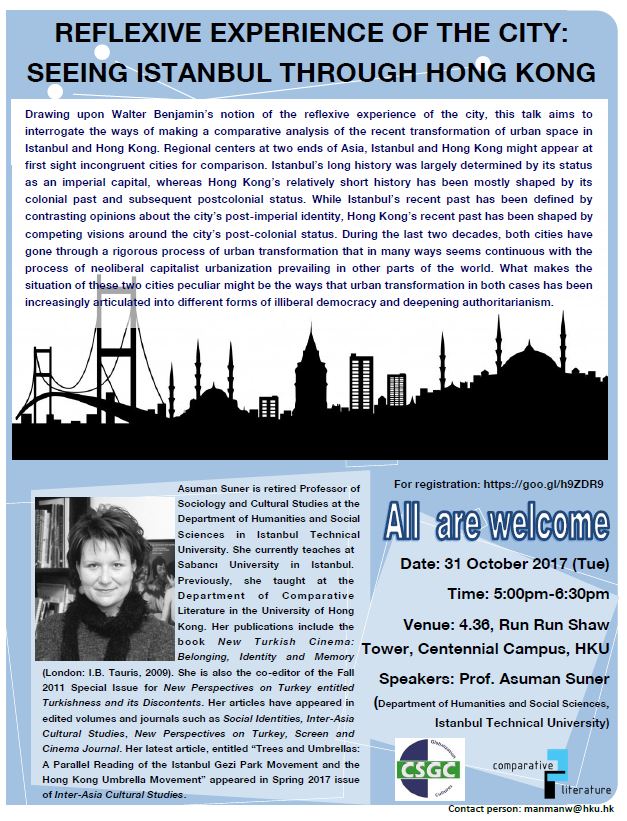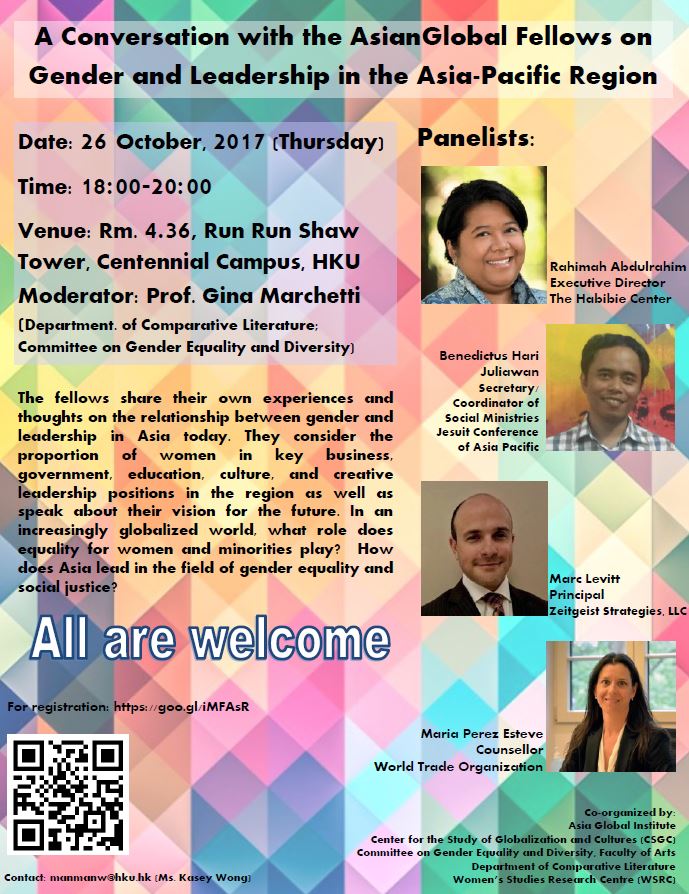
Speakers: Prof. Asuman Suner (Department of Humanities and Social Sciences in Istanbul Technical University)
Date: 31 October 2017 (Tue)
Time: 5:00pm-6:30pm
Venue: 4.36, Run Run Shaw Tower, Centennial Campus, HKU
About the Seminar:
Drawing upon Walter Benjamin’s notion of the reflexive experience of the city, this talk aims to interrogate the ways of making a comparative analysis of the recent transformation of urban space in Istanbul and Hong Kong. At first sight, Istanbul and Hong Kong, regional centers at two sides of Asia, might appear incongruent cities for comparison. Never having been formally colonized, Istanbul’s long history was mostly determined by its status as an imperial capital – of the East Roman, Byzantine and Ottoman Empires, respectively. By contrast, Hong Kong’s relatively short history has been mostly shaped by its colonial past and subsequent postcolonial status. While Istanbul’s recent past has been defined by contrasting opinions about the city’s postimperial identity, Hong Kong’s recent past has been shaped by competing visions around the city’s post-colonial status. During the last two decades, both cities have gone through a rigorous process of urban transformation that brought about what David Harvey calls increasing “commodification of the quality of urban life” and the redefinition of the city as a site of consumerism. While the transformation in Hong Kong is sometimes depicted as “bulldozer style development,” the present–day Istanbul has turned into a “city of cranes” because of its non-ending frenzy of construction. In both cases, the recent neoliberalization of urban space gave rise to a new wave of urban activism against the demolition of historic neighborhoods, implementation of massive urban projects, commodification of urban space, and the disappearance of street culture. On the one hand, the recent transformation of Istanbul and Hong Kong seems continuous with the process of neoliberal capitalist urbanization prevailing in other parts of the world. What makes the situation of these two cities peculiar might be the ways that urban transformation in both cases has been increasingly articulated into different forms of illiberal democracy and deepening authoritarianism.
About the Speaker:
Asuman Suner is retired Professor of Sociology and Cultural Studies at the Department of Humanities and Social Sciences in Istanbul Technical University. She currently teaches at Sabanci University in Istanbul. Previously, she taught at the Department of Comparative Literature in the University of Hong Kong. Her publications include the book New Turkish Cinema: Belonging, Identity and Memory (London: I.B. Tauris, 2009). She is also the co-editor of the Fall 2011 Special Issue for New Perspectives on Turkey entitled Turkishness and its Discontents. Her articles have appeared in edited volumes and journals such as Social Identities, Inter-Asia Cultural Studies, New Perspectives on Turkey, Screen and Cinema Journal. Her latest article, entitled “Trees and Umbrellas: A Parallel Reading of the Istanbul Gezi Park Movement and the Hong Kong Umbrella Movement” appeared in Spring 2017 issue of Inter-Asia Cultural Studies.
All are welcome!
